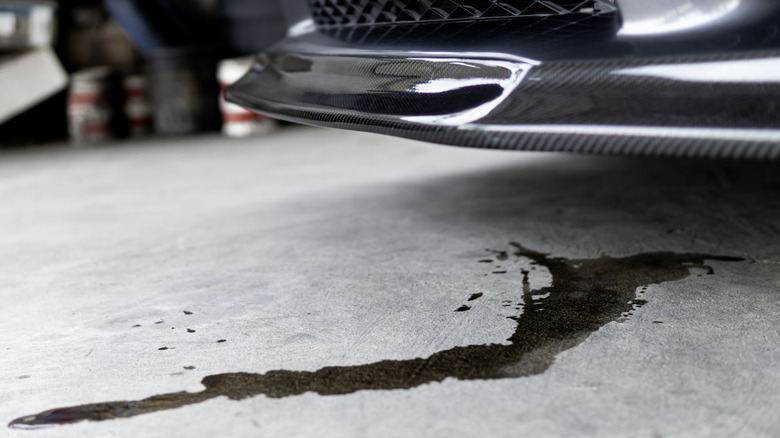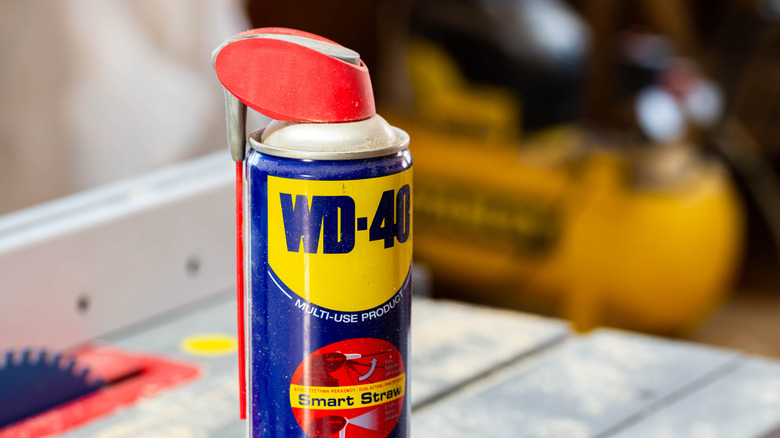How To Clean Fresh Oil Stains Using WD-40
If you've ever spotted a dark, greasy blotch under the car in your driveway, you know how frustrating it can be. Whether it's a small leak from an engine or a drip from an oil change gone wrong, oil stains happen to the best of us, and those ugly marks can really ruin the look and longevity of your concrete. But before you reach for harsh chemicals that might damage the concrete or give up completely, there's a surprisingly simple solution to clean up oil stains in your driveway: Soak the fresh oil stain in some WD-40 and scrub it out.
Although you can try this method on older spills as well, this genius tip for using WD-40 at home works best on fresh stains. That's because fresh oil sits on the surface of the concrete, while older stains tend to soak in and bond with the porous material. The longer oil sits, the tougher the stain is to remove — so, acting quickly gives you the best chances of having a clean driveway.
How to remove oil from your concrete with WD-40
A can of WD-40 spray is pretty much all you'll need to quickly and effectively clean oil stains from concrete with this method. You may already have this multi-purpose product lying around somewhere; and if you don't, it's just a quick trip to the store away. When you're ready to start cleaning, spray a generous amount of WD-40 directly onto the fresh oil stain, making sure there's enough product to cover all the affected areas evenly. Let it sit for about half an hour to help loosen the oil. Then, grab a stiff brush and scrub the area well. Finish by rinsing the spot with water to wash off the WD-40 and oil residue. Depending on how much oil there is, you may need to repeat the process once or twice.
While this is an easy cleaning method, you'll want to make sure the procedure is safe. One of the mistakes everyone makes when using WD-40 around the house is forgetting that it's flammable and not taking precautions accordingly. To prevent a fire hazard, always clean up WD-40 residue thoroughly and avoid using the product near open flames or heat sources like your car's engine. A little caution goes a long way, and you'll still end up with a driveway that looks brand new — just without anything catching on fire in the process.

